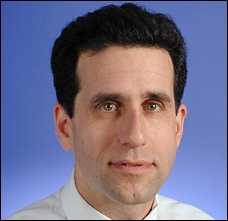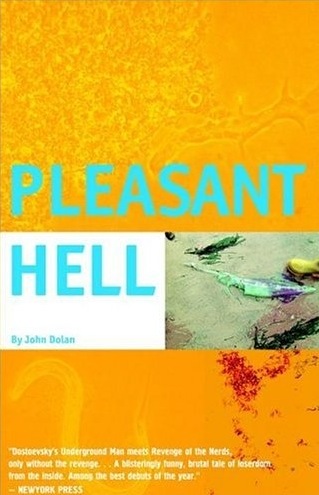Over the past few years, the Washington Post‘s editorial page has pushed an increasingly hostile line toward Russia, painting complex developments there in Manichaean terms and accusing the Kremlin–and usually Vladimir Putin–of responsibility for just about anything that goes wrong, real or imagined, in that part of the world. During the recent war between Russia and Georgia, Post editorials placed the blame squarely on alleged Russian neo-imperialism, going so far as to deny that the Georgians had inflicted serious destruction on the South Ossetian capital, despite reports from human rights organizations, the OSCE and even the Post‘s own journalists. This hardline, deeply flawed position by one of the nation’s most influential editorial pages has played a leading role in driving America and Russia to the brink of a new cold war.
A hyperbolic October 22 lead editorial, “More Poison: Another prominent adversary of Vladimir Putin is mysteriously exposed to toxins,” led me to ask the Post‘s editorial page editor and onetime Moscow bureau co-chief, Fred Hiatt, about his sources for the paper’s charges. Hiatt’s painstaking response unintentionally offered a rare glimpse into how, when it comes to Russia and Putin, the editorial page’s incessant demonization puts more weight on ideology than on journalistic professionalism–or simple fact-checking.
The editorial essentially accused Prime Minister Putin of poisoning a human rights lawyer in Strasbourg, France, by ordering the planting of mercury in her car. The lawyer, Karina Moskalenko, has taken on the Kremlin in the European Court of Human Rights on numerous occasions, so when she fell ill and her husband found traces of mercury in their car, French investigators were brought in to conduct an inquiry into a possible crime. But without waiting for the investigators’ report, Hiatt’s editorial page rushed out its scare-mongering verdict: “It’s chilling to consider that there would be another poisoning of another Putin enemy in another Western European city.”
Le Figaro, which had broken the story of the suspected poisoning a few days earlier, reported that French investigators had announced that the lawyer in all likelihood hadn’t been poisoned; the mercury came from a broken barometer from the car’s previous owner. The Post didn’t retract or apologize. The editorial page made no mention of the revelation, and the news editors banished the update to a tiny blurb buried on page A14.
In his e-mail response to my criticism of the editorial, Hiatt ignored my question asking why the Post hadn’t waited for the investigation results before publishing its own verdict. Instead, he made a new set of accusations. “I am aware of newspaper articles in Figaro and the New York Times that quoted unnamed police sources positing the theory that a broken thermometer was the source of the mercury found in Moskalenko’s car,” he said. “These sources were in Paris, where officials may have a foreign-policy reason not to spark a dispute with Russia, and not in Strasbourg, where the investigation was taking place.” He also implied that Moskalenko, who doubted the “broken-thermometer theory,” as Hiatt put it, was more reliable than the investigators. These were incredible charges leveled at Le Figaro and the French political and judicial systems. But was Hiatt right?
I decided to check his version of events by calling Cyrille Louis, the Figaro reporter. Louis had broken both stories: the alleged Moskalenko poisoning and the investigators’ findings debunking those allegations. Unlike the Post, The Nation doesn’t have a Paris bureau. And yet it took just two phone calls to reach Louis and ask him how he reported the story. “I am frankly surprised that the Washington Post‘s editorial page editor would say something like this without even calling me to see if what he says was true,” Louis told me, stunned and laughing. “It’s simply not true. I used several sources, but the two main sources were a top police official here in Paris and a top investigator from the prosecutor’s office in Strasbourg.” Louis even named the source in Strasbourg–assistant prosecutor Claude Palpacuer. His sources in Paris are reliable people he has been working with for years. Louis explained that the investigators felt they’d probably solved the case after they tracked down the car’s previous owner, a local antiques dealer who had indeed broken an old barometer (not thermometer) in the car shortly before selling it.
I then asked Louis what he thought about Hiatt’s larger assumption: that Le Figaro‘s sources in Paris could not be trusted because the French might be worried about upsetting Russia. Again, Louis laughed in disbelief: “This sounds like a kind of conspiracy theory. You would have to believe that judges and police officials in two cities conspired to manipulate a Le Figaro journalist in order to plant a story that was not very big news here in the first place. Why would the authorities go through all of this effort for such a small story? I find this idea of a conspiracy completely unlikely.” Louis was disappointed at Hiatt’s accusations: “I suppose I might feel honored that the Washington Post bothers to write about me, but you know, I feel a bit surprised. If he called me I could have explained how I wrote the story. But he didn’t try. Quite often we’re very impressed here by how American journalists work, the high standards they use to source stories…. So it’s disappointing to learn that [Hiatt] came to his conclusions about the way I work without even calling me.”
Louis gave me the contact information for assistant prosecutor Palpacuer, who is overseeing the investigation. I tapped an old writer/translator friend in Paris, Thierry Marignac, to interpret for me. Palpacuer confirmed everything Louis told me, although the case had moved a bit further since then: “The amounts of mercury were so tiny that they were not toxic. We took blood samples from Moskalenko’s family, and the results show that the mercury amounts in their blood were insignificant. In any case, mercury would have to be inhaled or injected in order to be lethal,” Palpacuer said. “The investigation is not closed yet and has been given to the criminal division of the Strasbourg police department. But we know the former owner of the vehicle broke a barometer in it before selling the car, and those amounts correspond to the amounts we found.”
Read more: Hiatt, putin, Washington Post, Mark Ames, Fatwah


Got something to say to us? Then send us a letter.
Want us to stick around? Donate to The eXiled.
Twitter twerps can follow us at twitter.com/exiledonline

















14 Comments
Add your own1. Baked Dr. Luny | December 11th, 2008 at 5:37 pm
Russian agents poisoning someone with mercury? Are we really supposed to believe that someone would try to use mercury to kill someone? People used to drink the stuff for christ’s sake. I guess it would kill someone if it were injected into their bloodstream, and the vapors can be toxic, but come on. People used to practically swim in the stuff back before they knew it was dangerous and they’d go mad, but only after years of working with it. This is so ridiculous it goes beyond yellow journalism, someone’s got to have a motive for trying to bring back the red menace. Does the company that owns the Post have any defence industry holdings?
2. Delfosse | December 12th, 2008 at 12:44 am
Bweh, I got friends in USA who still think Russia invaded Georgia.
If Putin had to poison somebody, I think he’d go for Post’s journalists first.
3. George D | December 12th, 2008 at 2:19 am
Jesus Christ. If you’re going to poison someone, as has been said above, you don’t do it with mercury. Even the Indonesians used to use something like arsenic on noisy human rights lawyers. It’s not like the Russians haven’t had 70 years of the USSR to develop good technique, and another decade or so to refine that under Putin.
Do they think the Russians are that incompetent? Probably, being the Post. Are they racists, or just stupid? You decide.
4. P2O2 | December 12th, 2008 at 5:09 am
Not “or”, both.
5. TB003 | December 12th, 2008 at 10:56 am
You think this is bad, you should’ve seen Hiatt’s editorializing during the Iraq War mess. Even when he listed facts that contradicted his own beliefs, he would always conclude with something along the lines of “this proves we should not cut and run.”
You see, facts tend to have a “liberal” bias, so Hiatt feels the need to balance it out with right-wing BS.
6. Rubino | December 12th, 2008 at 11:07 am
Great article. Other than, “This hardline, deeply flawed position by one of the nation’s most influential editorial pages has played a leading role in driving America and Russia to the brink of a new cold war.”
For there to be a new cold war, there would need to be an ideological stalemate. Russia would need a distinct ideology to oppose that of Western democratic capitalism, which it does not. In fact, it appears to have no ideology at all.
7. Kavuye Toon | December 12th, 2008 at 11:10 am
I’m glad you exist
8. slavdude | December 12th, 2008 at 11:31 am
Ah yes, reminds me of the good old days of the late Cold War and my grad school teachers at Harvard. I think the wingers are looking for a new enemy, and they are still being influenced by people who haven’t gotten over the real or perceived slights and harm they (may or may not have) received at the hands of the old Soviet Union. Why not pick on Russia, which in the mid-1990s rejected the Shock Doctrine so beloved by Republicans, Democrats, and mainstream academic economists in the United States?
9. ShMiller | December 12th, 2008 at 6:23 pm
Keep chipping away at em’ Ames. You’ll nail someone to the wall yet for the Western media (in the general sense)’s clustfuck of an excuse for “reporting” on pretty much anything to do with Russia.
First up Hiatt … we can only hope. Next … the Economist? Haha.
10. yabadabadoo | December 12th, 2008 at 6:53 pm
Putin sucks ass.
11. james | December 13th, 2008 at 4:43 am
I’m sure the fact that he is Jewish (like 99% of the media in the US) and supported Israel’s slaughter in Lebanon has nothing to do with the fact that he hates Russia.
And Russia during th 90’s was not economic policy gone wrong. It was specifically designed to destroy the country manufactured by George Soros and his Harvard economic goons who just happen to be Jewish also.
In fact let’s get to the crux of the matter Communism was a Jewish invasion of Russia.
http://www.the7thfire.com/new_world_order/zionism/jews_and_bolshevism.htm
12. RPG Cunthair | December 13th, 2008 at 9:54 am
If his fuckin eyes get closer together he will have trouble blinking. Fucking inbred monkey.
13. GO MIC! | December 13th, 2008 at 3:42 pm
Nothing will beat the Yellow Journalism’s coverage of the 2008 South Ossetian War. Nothing. Some quotes:
“The Russians couldn’t sit inside a steel car, because it was hot!” (but the Russian driver could)
“Russia’s army is poorly trained, they lost one airplane.” (Army isn’t the Air Force and 1/10,000 planes lost…yeah riiight)
“Russia went around killing South Ossetians”
“Putin will invade Tbilisi and take Saakashvili hostage”
“This was will cause a rift between Russia and China”
Sorry Ames, but like I said, nothing can beat the Military Industrial Complex’s coverage of the South Ossetian War.
14. oleg | December 14th, 2008 at 2:33 pm
Every time I see Hiatts and Applebaums of the world write their nonsense about Russia, I get warm and fuzzy, because I know that the day it happens is the day when WaPo loses another 5-10 readers. I mean, people may be stupid but NOT THAT STUPID.
When I feel down I just take a look at WaPo stock price, and that makes me happy and content. That thing is gonna die soon, or shrivel into complete irrelevance. There is God after all.
Leave a Comment
(Open to all. Comments can and will be censored at whim and without warning.)
Subscribe to the comments via RSS Feed